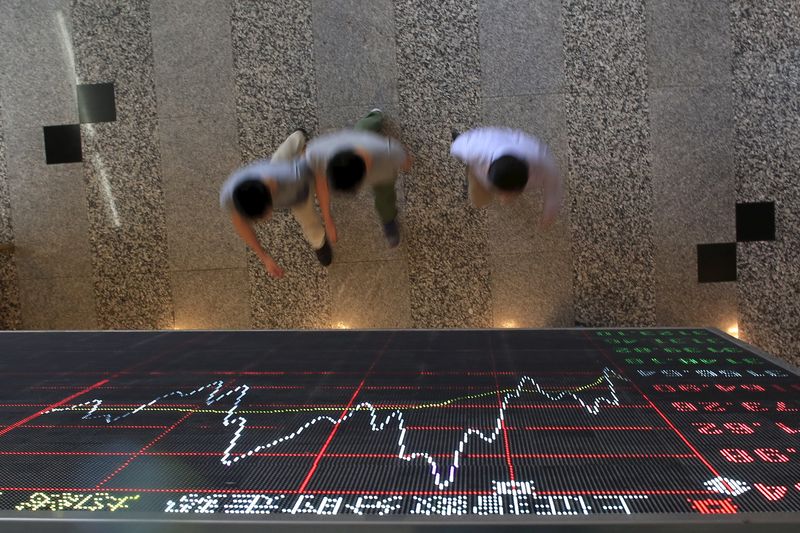© Reuters.
Investing.com– Most Asian stocks sank on Wednesday as markets hunkered down before key U.S. consumer inflation data due later in the day, with Chinese bourses down for a second straight session after disappointing trade readings.
China’s and indexes fell 1.2% and 0.8%, respectively, tracking weaker-than-expected data that ramped up fears that an economic rebound in the country was running out of steam.
Chinese also grew at a slower pace from the prior month, pointing to continued pressure on the country’s massive manufacturing sector. A swathe of weak economic data has seen traders question the breadth of a Chinese economic recovery this year, as the country reemerges from three years of anti-COVID measures.
Losses in China spilled over into markets with big trade exposure to the country, with Hong Kong’s index down 0.6%, while the index and South Korea’s lost 0.8% and 0.1%, respectively.
Australia’s index also lost 0.3% on this notion, as losses in China-exposed mining stocks weighed.
Japan’s index fell 0.4% from a near nine-month high, as traders used the risk-off sentiment to lock in a strong run of recent profits. Robust corporate earnings and expectations of accommodative monetary policy had fueled a stellar rally in the Nikkei over the past month, making it among the best performing Asian markets in April.
With the Bank of Japan set to maintain its ultra-dovish monetary policy in the near-term, the Nikkei is expected to push higher in the coming days.
Broader Asian markets retreated, tracking a weak lead-in from Wall Street as investors turned cautious ahead of inflation data due later on Wednesday.
The reading is expected to show that inflation eased further in April, but remained well above the Federal Reserve’s 2% annual target, which could invite more hawkish measures from the central bank.
While U.S. interest are expected to have peaked this year, markets are this year, meaning U.S. borrowing costs will stay higher for longer.
This is expected to weigh on risk-driven assets, and limit any major upside in Asian stocks after a bruising 2022.
Discussions over the U.S. debt limit also kept sentiment dim, with no progress towards preventing a U.S. default before a supposed June 1 deadline.
Read the full article here


